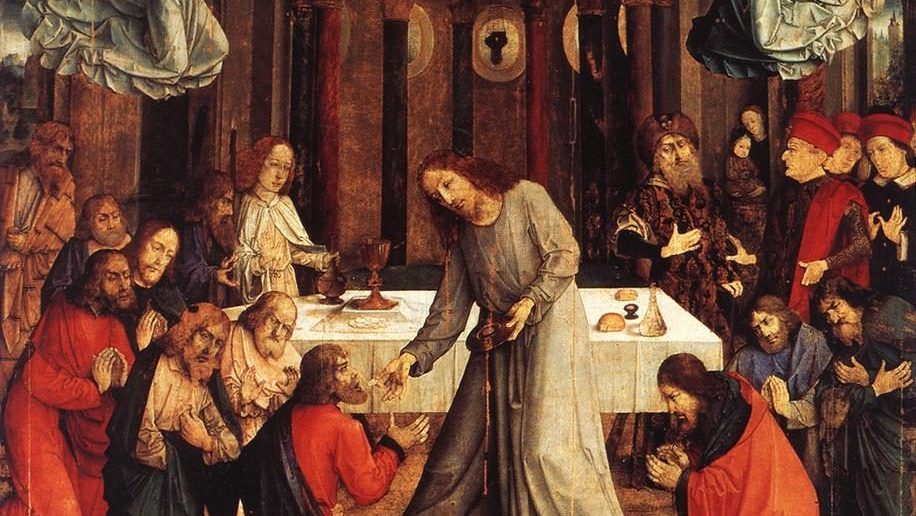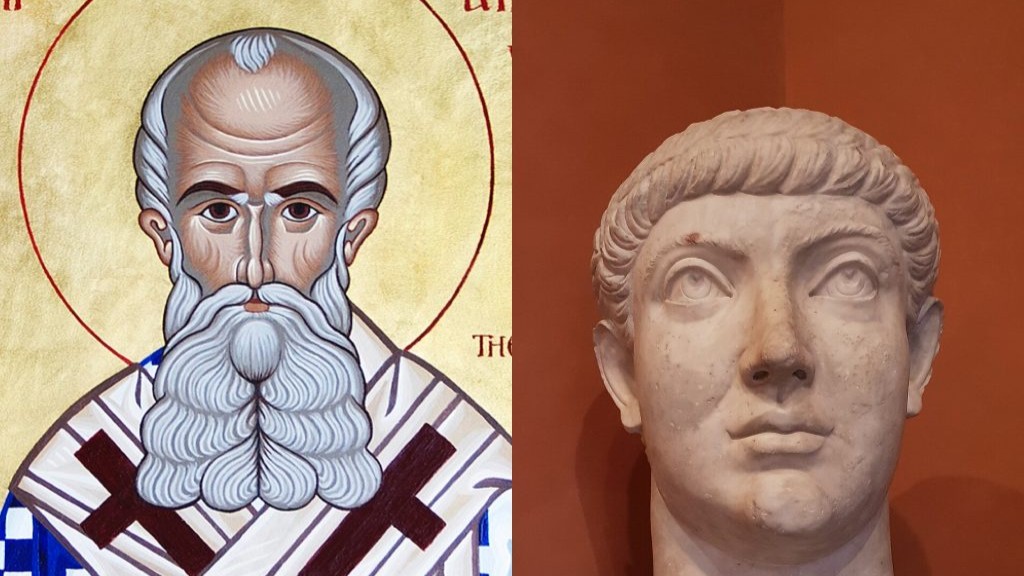(Updated March 24, 2025)
Editor’s Introduction
Great Tradition Treasury Summary
In an effort to make the writings of the Church Fathers more available and accessible, Eternal Christendom is in the process of creating a “Great Tradition Treasury,” which will modernize and make as many writings of the Great Tradition available in the public domain. A prominent part of this Treasury will be a new collection of the writings of the Fathers whose translations into English are in the public domain, most from the 19th century. While they have much to commend them, they stand in need of improvement in order to be more accessible to a 21st century audience.
With that in mind, the Great Tradition Treasury will edit and refine these translations in the following ways:
- Modernize Spelling | Update the spelling of certain archaic English words (i.e. “thee,” “thou,” “hath,” various plural words ending in “eth,” etc.).
- Standardize Scripture Citations | Standardize and correct the citations to Scripture, and placing them in the body of the text, so that alternating between text and footnotes is kept to a minimum. Every direct quote of Scripture will be followed by a parenthetical, and every allusion to it will be followed by a bracketed citation, each linked to the RSVCE.
- Optimize Headings | Improve the 19th century editor-provided headings, which are often too wordy or imprecise.
- Alternative Renderings | Place alternative renderings of phrases provided by the translators next to the translated text in [bolded, bracketed font], so that the alternative can be seen within the text (rather than a footnote), but also clearly distinguished from it. Literal renderings will be displayed [literal: “quote”]. Alternative renderings will be displayed [or, “quote”].
- Hyperlinked Cross-Referencing | Whenever possible, hyperlink to publicly available versions of the works cited, whether Scripture or otherwise.
- Correct Mistakes | Fix typos, misspellings, and incorrect citations to Scripture and other sources.
Document Information
- Author/Title/Source | St. Ignatius of Antioch, Letter to the Romans
- Date | c. 107
Ignatius, who is also called Theophorus, to the Church which has obtained mercy, through the majesty of the Most High Father, and Jesus Christ, His only-begotten Son; the Church which is beloved and enlightened by the will of Him that wills all things which are according to the love of Jesus Christ our God, which also presides in the place of the region of the Romans, worthy of God, worthy of honor, worthy of the highest happiness, worthy of praise, worthy of obtaining her every desire, worthy of being deemed holy [or, “most holy”], and which presides over love, is named from Christ, and from the Father, which I also salute in the name of Jesus Christ, the Son of the Father: to those who are united, both according to the flesh and spirit, to every one of His commandments; who are filled inseparably with the grace of God, and are purified from every strange taint, [I wish] abundance of happiness unblameably, in Jesus Christ our God.
Through prayer1 to God I have obtained the privilege of seeing your most worthy faces [literally: “worthy of God”], and have even [or, “which I much desired to do”] been granted more than I requested; for I hope as a prisoner in Christ Jesus to salute you, if indeed it be the will of God that I be thought worthy of attaining unto the end. For the beginning has been well ordered, if I may obtain grace to cling to [literally: “to receive”] my lot without hindrance unto the end. For I am afraid of your love,2 lest it should do me an injury. For it is easy for you to accomplish what you please; but it is difficult for me to attain to God, if you spare me.
§2 | Do Not Save Me From Martyrdom
For it is not my desire to act towards you as a man-pleaser,3 but as pleasing God, even as also you please Him. For neither shall I ever have such [another] opportunity of attaining to God; nor will you, if you shall now be silent, ever be entitled to [literally: “have to be inscribed to”] the honor of a better work. For if you are silent concerning me, I shall become God’s; but if you show your love to my flesh, I shall again have to run my race. Pray, then, do not seek to confer any greater favor upon me than that I be sacrificed to God while the altar is still prepared; that, being gathered together in love, you may sing praise to the Father, through Christ Jesus, that God has deemed me, the bishop of Syria, worthy to be sent for [literally: “to be found and sent for”] from the east to the west. It is good to set from the world unto God, that I may rise again to Him.
§3 | Pray That I May Attain Martyrdom
You have never envied anyone; you have taught others. Now I desire that those things may be confirmed [by your conduct], which in your instructions you enjoin [on others]. Only request in my behalf both inward and outward strength, that I may not only speak, but [truly] will; and that I may not merely be called a Christian, but really be found to be one. For if I be truly found [a Christian], I may also be called one, and be then deemed faithful, when I shall no longer appear to the world. Nothing visible is eternal [or, “good”]. “For the things which are seen are temporal, but the things which are not seen are eternal” (2 Cor. 4:18).4 For our God, Jesus Christ, now that He is with [or, “in”] the Father, is all the more revealed [in His glory]. Christianity is not a thing [literally: “work”] of silence only, but also of [manifest] greatness.
§4 | Allow Me to Become Prey for Wild Beasts
I write to the churches, and impress on them all, that I shall willingly die for God, unless you hinder me. I beseech of you not to show an unseasonable good-will towards me. Suffer me to become food for the wild beasts, through whose instrumentality it will be granted me to attain to God. I am the wheat of God, and let me be ground by the teeth of the wild beasts, that I may be found the pure bread of Christ. Rather entice the wild beasts, that they may become my tomb, and may leave nothing of my body; so that when I have fallen asleep [in death], I may be no trouble to anyone. Then shall I truly be a disciple of Christ, when the world shall not see so much as my body. Entreat Christ for me, that by these instruments [i.e., the teeth of wild beasts] I may be found a sacrifice [to God]. I do not, as Peter and Paul, issue commandments to you. They were apostles, I am but a condemned man; they were free [from human infirmity?], while I am, even until now, a servant. But when I suffer, I shall be the freed-man of Jesus, and shall rise again emancipated in Him. And now, being a prisoner, I learn not to desire anything worldly or vain.
From Syria even unto Rome I fight with beasts [1 Cor. 15:32], both by land and sea, both by night and day, being bound to ten leopards, I mean a band of soldiers, who, even when they receive benefits,5 show themselves all the worse. But I am the more instructed by their injuries [to act as a disciple of Christ]; “yet am I not thereby justified” (1 Cor. 4:4). May I enjoy the wild beasts that are prepared for me; and I pray they may be found eager to rush upon me, which also I will entice to devour me speedily, and not deal with me as with some, whom, out of fear, they have not touched. But if they be unwilling to assail me, I will compel them to do so. Pardon me [in this]: I know what is for my benefit. Now I begin to be a disciple. And let no one, of things visible or invisible, envy6 me that I should attain to Jesus Christ. Let fire and the cross; let the crowds of wild beasts; let tearings,7 breakings, and dislocations of bones; let cutting off of members; let shatterings of the whole body; and let all the dreadful [literally: “evil”] torments of the devil come upon me: only let me attain to Jesus Christ.
§6 | I Will Attain True Life Trough Death
All the pleasures of the world, and all the kingdoms of this earth [literally: “this age”], shall profit me nothing. It is better for me to die in behalf of [literally: “into”] Jesus Christ, than to reign over all the ends of the earth. “For what shall a man be profited, if he gain the whole world, but lose his own soul?” (Matt. 16:26).8 Him I seek, who died for us: Him I desire, who rose again for our sake. This is the gain which is laid up for me. Pardon me, brethren: do not hinder me from living, do not wish to keep me in a state of death [literally: “to die”]; and while I desire to belong to God, do not you give me over to the world. Suffer me to obtain pure light: when I have gone there, I shall indeed be a man of God. Permit me to be an imitator of the passion of my God. If anyone has Him within himself, let him consider what I desire, and let him have sympathy with me, as knowing how I am straitened.
The prince of this world would fain carry me away, and corrupt my disposition towards God. Let none of you, therefore, who are [in Rome] help him; rather be you on my side, that is, on the side of God. Do not speak of Jesus Christ, and yet set your desires on the world. Let not envy find a dwelling-place among you; nor even should I, when present with you, exhort you to it, be you persuaded to listen to me, but rather give credit to those things which I now write to you. For though I am alive while I write to you, yet I am eager to die. My love [either Christ, or the natural love of the heart] has been crucified, and there is no fire in me desiring to be fed [literally: “desiring material”]; but there is within me a water that lives and speaks,9 saying to me inwardly, Come to the Father. I have no delight in corruptible food, nor in the pleasures of this life. I desire the bread of God, the heavenly bread, the bread of life, which is the flesh of Jesus Christ, the Son of God, who became afterwards of the seed of David and Abraham; and I desire the drink of God, namely His blood, which is incorruptible love and eternal life.
I no longer wish to live after the manner of men, and my desire shall be fulfilled if you consent. Be you willing, then, that you also may have your desires fulfilled. I entreat you in this brief letter; do you give credit to me. Jesus Christ will reveal these things to you, [so that you shall know] that I speak truly. He10 is the mouth altogether free from falsehood, by which the Father has truly spoken. Pray you for me, that I may attain [the object of my desire]. I have not written to you according to the flesh, but according to the will of God. If I shall suffer, you have wished [well] to me; but if I am rejected, you have hated me.
§9 | Pray for the Church in Syria
Remember in your prayers the Church in Syria, which now has God for its shepherd, instead of me. Jesus Christ alone will oversee it, and your love [will also regard it]. But as for me, I am ashamed to be counted one of them; for indeed I am not worthy, as being the very last of them, and one born out of due time [1 Cor. 15:8-9]. But I have obtained mercy to be somebody, if I shall attain to God. My spirit salutes you, and the love of the Churches that have received me in the name of Jesus Christ, and not as a mere passer-by. For even those Churches which were not11 near to me in the way, I mean according to the flesh [i.e. on the road he travelled], have gone before me [or, “have sent me forward”; cf. Tit. 3:13], city by city, [to meet me].
Now I write these things to you from Smyrna by the Ephesians, who are deservedly most happy. There is also with me, along with many others, Crocus, one dearly beloved by me [literally: “the name desired to me”]. As to those who have gone before me from Syria to Rome for the glory of God, I believe that you are acquainted with them; to whom, [then,] do you make known that I am at hand. For they are all worthy, both of God and of you; and it is becoming that you should refresh them in all things. I have written these things to you, on the day before the ninth of the Kalends of September (that12 is, on the twenty-third day of August). Fare you well to the end, in the patience of Jesus Christ. Amen.
Footnotes
- Some read, “since I have,” leaving out the following “for,” and finding the apodosis in “I hope to salute you.” ↩︎
- He probably refers here, and in what follows, to the influence which their earnest prayers in his behalf might have with God. ↩︎
- Some translate as in longer version, but there is in the one case ὑμῖν, and in the other ὑμᾶς. ↩︎
- This quotation is not found in the old Latin version of the shorter version. ↩︎
- Probably the soldiers received gifts from the Christians, to treat Ignatius with kindness. ↩︎
- In the shorter version there is ζηλώσῃ, and in the longer ζηλῶσαι; hence the variety of rendering, but the translation is by no means certain. ↩︎
- Some deem this and the following word spurious. ↩︎
- Some omit this quotation. ↩︎
- The text and meaning are here doubtful. We have followed Hefele, who understands by the water the Holy Spirit, and refers to John 7:38. ↩︎
- Some refer this to Ignatius himself. ↩︎
- Some refer this to the jurisdiction of Ignatius. ↩︎
- This clause is evidently an explanatory gloss which has crept into the text. ↩︎








